Massachusetts First-Time Homebuyer Assistance Programs
Massachusetts First-time Homebuyer Programs
Buying your first home is an exciting milestone, but the idea of saving up a hefty 20% down payment can feel overwhelming. The good news is that you don’t need to wait until you’ve saved that much. In fact, several low-down-payment mortgage programs can help you achieve your homeownership dreams with as little as 3% or even 0% down. In this article, we’ll explore these programs and shed light on the options available for first-time buyers.


Types Of Loan Programs for First-Time Homebuyers in Massachusetts
Becoming a homeowner can be a financially intimidating process, but there are several options from lenders and government sources designed to smooth the way. Qualified home buyers can secure loans with low down-payment minimums and participate in local buyer assistance programs. Some may even finance fixer-uppers that require more work but cost less upfront. Here is a comprehensive guide to both national and local Massachusetts first-time home buyer programs.
Fannie Mae HomeReady®
The Fannie Mae HomeReady loan program is a conventional (nongovernment) mortgage backed by Fannie Mae and available through mortgage lenders. This program is a game-changer for low- and moderate-income borrowers, offering low down payment requirements, flexible income sources, and reduced mortgage insurance premiums (PMI).
Qualifications
- Down payment: Just 3% You’ll need mortgage insurance until your loan balance reaches 80% of the home’s value.
- Credit score: A FICO score of 620 or higher is required.
- Debt-to-income ratio (DTI): Generally, it’s 36%, but exceptions can go up to 45% or even 50% in special cases.
- Income restrictions: Your earnings should be limited to 80% of the area median income (AMI).
Is a Fannie Mae HomeReady Loan Right for You?
If you’re a low- or moderate-income borrower with a credit score of at least 620, the HomeReady loan program could be your ticket to homeownership. It offers affordable down payment options and flexible financial guidelines, making it a top choice for those who meet the credit score requirements and income restrictions.

What are today’s mortgage rates in Massachusetts?
You can see today’s Current Housing Market Mortgage Rates in Massachusetts here. When you’re ready to start the home buying process, use our mortgage calculator to see how your down payment and interest rates will affect your monthly payment. Then make sure you get personalized rate quotes from at least three to five mortgage lenders. Don’t just look at advertised rates online; actually, apply for preapproval and compare the interest rates and fees you’re offered. That’s the only way to know you’re getting the best deal possible on your new home loan.
FAQ
Find Out Answers Here
Conventional mortgages hold the title as the most popular type, with lenders originating more than 4.1 million conventional loans in 2022. This contrasts with over 1.3 million nonconventional mortgage originations, including FHA, VA, and USDA mortgages, highlighting the diverse needs of homebuyers.
VA loans often feature the lowest interest rates, benefiting from the support of the Department of Veterans Affairs. However, FHA mortgages also offer competitive rates, particularly for those with less-than-perfect credit histories. Ultimately, securing the best rates depends on various factors, including credit score, debt-to-income ratio, property type (single-family home, condo, or multi-family and down payment size.
FHA mortgages are generally considered the easiest to qualify for, designed to assist those with lower incomes or less-than-ideal FICO scores. If you’re finding it challenging to qualify for a conventional mortgage, an FHA loan could be a viable path to homeownership.
Many first-time homebuyer programs allow buyers who haven’t owned a property in the past three years. This includes divorced spouses who have only jointly owned a home with an ex-spouse.
Choosing the best mortgage lender will depend on the home loan options you’re applying for, how much you want to borrow, the term of the loan, mortgage interest rate, and many other factors. Review our guides for best mortgage lenders, top FHA lenders, and best VA lenders.
Choosing the right mortgage is a significant decision that will impact your finances for years to come. Whether you’re considering a loan backed by the U.S. Department of Veterans Affairs to take advantage of lower mortgage rates without the need for upfront mortgage insurance or exploring a USDA mortgage to purchase a home in a rural area, tools like a mortgage calculator can be invaluable. They help you understand the total loan cost, including the life of your loan and potential higher monthly payments. Remember, making a down payment can reduce your monthly obligations and increase the equity in your home from the start. Ultimately, the best path forward involves careful consideration of your ability to qualify for a mortgage, the type of loan that suits your financial situation, and how long you plan to stay in your home, ensuring you select the mortgage that aligns with your long-term goals.


